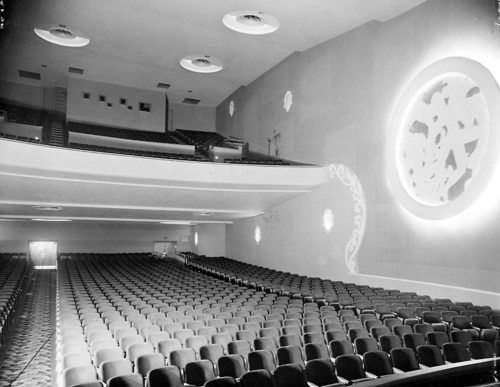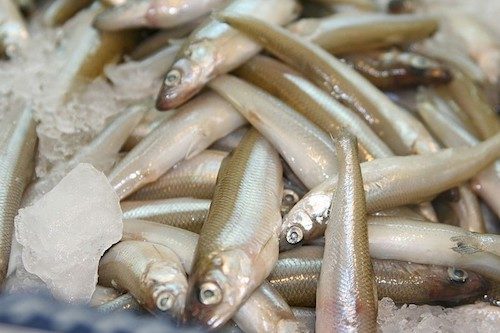North Country Girl: Chapter 15 — Saturday Matinee at the Norshor
For more about Gay Haubner’s life in the North Country, read the other chapters in her serialized memoir. The Post will publish a new segment each week.
One muddy grey spring afternoon, I was trudging home at the back a gaggle of Congdon fifth graders when a man approached us. In the early sixties there was no “stranger danger” (thus so many kids being dropped off in toy departments while their moms shopped). Duluth children were raised to be polite and helpful so we stopped and listened to him when he said “Hey kids, do you like movies?” He had a special offer, just for us. Every Saturday, there was going to be a matinee for kids at the Norshor Theatre: a cartoon, a serial (whatever that was), and a movie. He had strips of tickets printed up with the dates and the names of the movies. Each ticket was a dollar, but you had to buy the whole series of eight movies. Of course, none of us had eight dollars, I doubt if we could have come up with 80 cents among us. Not a problem, he was going around to all the elementary schools in Duluth and would be back in a few days. We could buy our tickets then.
I was giddy with excitement. I was almost too old for Disney movies, those once-a-year treats. I would have willingly sat through any movie just to go to the grand old Norshor, a vaudeville theatre that had undergone only slight renovations to show movies. There were hundreds of scratchy maroon seats, extending up through a never used balcony, seats that released with a loud “thump” when you stood up, annoying everyone around you. (My sister Lani would spend the entire ninety minutes of the Disney movie going up and down, up and down.) The ladies’ room had floor to ceiling mirrors, chrome stand ashtrays, leather ottomans with brass studs, and Art Deco wallpaper of green and pink bubbles my grandmother would have swooned over. Best of all was the snack bar, which I had always viewed as Moses did the Promised Land. I pictured myself at the kids’ movies, standing in line at the snack bar, fondling a dime liberated from the ashtray in my dad’s car, pondering: buttered popcorn? Jujubes? Sno-caps? Maybe an ice cream bar? Or a hot dog, ketchup only, plucked from its rotating metal bed. There was also a barrel of pickles for those misbegotten souls who wanted to eat a pickle while watching a movie.
I wheedled the eight bucks from my dad and along with most of my classmates, eagerly awaited the “movie man” on the day of his return.

The surprising thing is that there actually were movies. Well, for a while. The girls spent the week before the movie discussing who was going and who we would sit with. Would there be attempts at hand holding or even kissing? Then there was the rare thrill of mixing with kids from other schools. Would the tough west side greasers-in-training pick fights with the well-bred east side boys?
For a few successive Saturdays, hordes of kids, jingling with pocket change, boarded the bus downtown. Crabby old ladies learned to stay home those afternoons. We took over the entire theatre; they even opened the balcony to accommodate us.
The cartoons were the same black-and-white Betty Boops and Merrie Melodies I knew and loved. The serial turned out to be The Lone Ranger (with a different Lone Ranger and Tonto from the TV show) and the movies were marvelous. I saw Journey to the Center of the Earth, The Lost World, The Boy and the Pirates, and The Day the Earth Stood Still. I came home as if waking from a wonderful dream, slightly sticky from spilled pop, which was served in dissolving wax cups with no caps. And then it was over. The movie man skipped town, or the Norshor got tired of having to clean up after 300 kids had spent two hours having popcorn fights and pelting one another with Jujubes. The last straw many have been when Billy Shaw got the brilliant idea to smuggle in a can of Dinty Moore beef stew to the first row of the balcony, lean over while making puking sounds, then dump the contents of the can on the kids below. I looked at my four unused tickets and thought again what a cruel world this was.
***
The summer after fifth grade my family took the train to Seattle for the World’s Fair. It was a last grasp at the golden age of train travel. We had our own sleeper car, with a tiny bathroom and narrow bunks that miraculously appeared each night, thanks to a red-jacketed porter. We ate our meals in the dining car, at tables with heavy china and silverware, white tablecloth, and a single red rose in a cut glass vase, which vibrated gently as we sped along. We spent our days in the dome car, where the towering grandeur of the Rockies compelled me to take my nose out of a book for once.
It seemed that what my father, who unilaterally controlled the money and the agenda, enjoyed most about this trip was denying my sister Lani and me anything we really wanted. Scattered throughout the World’s Fair were “Pick a Pearl!” stands with tanks full of oysters. For a dollar, you selected an oyster out of the tank, which would be opened on the spot, not to eat, but in hopes of finding a pearl. I pressed my nose against the glass display of lustrous white and pink pearls big as marbles that had been found in the oysters (by whom? And why didn’t they keep their pearls?) and begged in vain for a go. My father, a gambler who had lost thousands of dollars playing poker badly or investing in sure thing oil wells, refused to part with the buck. That there was one of these stands around every corner was a constant irritation to me, like a grain of sand that had snuck into my shell.
I was also poked in the eye by the Space Needle, unavoidable from anywhere at the fair. I knew that at the top of the Space Needle was a revolving restaurant, a ride that you can actually eat on! But the Haubner family could not eat there or even take the elevator up to look at the lucky diners going round and round: my father said the line was too long. We couldn’t see the puppet show at the French pavilion, “Les Poupees de Paris”; my father thought it might be inappropriate for kids (it was a puppet show). I told Lani it was actual poops on stage and she threw such a fit at not being allowed to see this wondrous thing that we had to leave the fair immediately. Dinner at the Chinese pavilion ended in a universal family melt down, complete with tears and shouting when Lani and I spotted entire bags of fortune cookies for sale, which my father refused to buy on the grounds that we didn’t want the cookies, just the fortunes (that was true, but still: a bag of fortunes!). After Seattle we went to Vancouver Island, where I got to look at other people enjoying afternoon tea in the rose garden of the Empress Hotel. These fortunate few sat at wicker and glass tables covered with china pots, gilt-edged teacups, and tiered silver trays lined with paper doilies that held gleaming pastries and tiny frosted cakes and sandwiches with the crusts cut off. No tea for me. (Dad: “You won’t like it.”)

After the vacation of forbidden treats was behind me, I spent the next two weeks of the summer at Wanakiwin, hoping to bask in my status as a returning camper, only to find myself once more relegated to the beginners´ group in tennis, boating, and horseback riding. But there was a new crew of bunkmates who were eager to share a fount of sexual misinformation, including the news that you could get pregnant if you French kissed a boy. When another girl (not me, I was too embarrassed to reveal my ignorance) asked what a French kiss was, two girls volunteered to demonstrate at length. Lani was at camp again too, but I only saw her on the far side of dining hall, refusing to eat anything but plain spaghetti noodles and peanut butter and jelly sandwiches.
The minute my parents picked Lani and me up from camp, we began our “Can we go to the pool? Can we go to the pool?” chant. My mother was a hundred months pregnant, and maternity swimsuits had not yet been invented. She was not going to the pool. Somehow my parents wrangled special dispensation from the lords of Northland Country Club, and found a 16-year-old girl to drive Lani and me to the pool, where she completely ignored us, spending all her time perfecting her sunburn and attempting to attract the attention of the lifeguard. He was too absorbed in trying to never have to go in the pool (“Get back in the shallow end or get out!”) and keeping his whistle in a perpetual twirl.
On August 21st, to my father’s distress, a third Haubner girl was born. Girls I barely knew showed up at my house to ooh and aah at the adorable pink bundle that was baby Heidi (who had a narrow escape from being named Hedda), and begging to hold her. Shortly after Heidi appeared, Nana flew in from Aberdeen to take over baby care, shooing away girls who might have become my friends (“No you can’t hold this baby! The idea!”). Lani went into hiding for six months.
Somehow we all knew there would not be a Jack Haubner Junior, so at Heidi’s birth I was immediately elevated into lawn maintenance, the traditional realm of sons. My father had tried one experiment to see if I would be an acceptable substitute for a son in other areas, like fishing. In early spring, when the ice first starts to thaw, was the annual smelt run. The small silvery fish, which were more bones than flesh, were so thick in every stream and river that you could scoop them out of the water. It was the duty of every male Duluthian to go out with a net and a bottle of Seagram’s and return with 80 pounds of smelt for the freezer, where they would remain until they were thrown out to make room for next spring’s catch.

I was lying on the ratty couch in the basement rec room, knees tucked up, nose in book. My father yelled down the stairs, “Gay, we’re going smelt fishing!” I had been smelt fishing once before and had spent the entire time in the car listening to the radio and punching Lani. I had no desire to go again and my legs were curled under me for a reason: “My stomach hurts.” My father had no patience for such malingering. He rousted me off the couch and into several layers of non-waterproof clothes, and we were off to the Knife River. If you don’t feel at all well, it’s not a good idea to stand around in three feet of snow, watching fish being killed. After several netfuls of fish had been sloshed into the huge bucket beside me, I threw up. “I told you I feel sick,” I moaned as my father gazed at my puke in disbelief, as if I had just come up with a new talent for barfing at will. Then I shit my pants and got to go home.